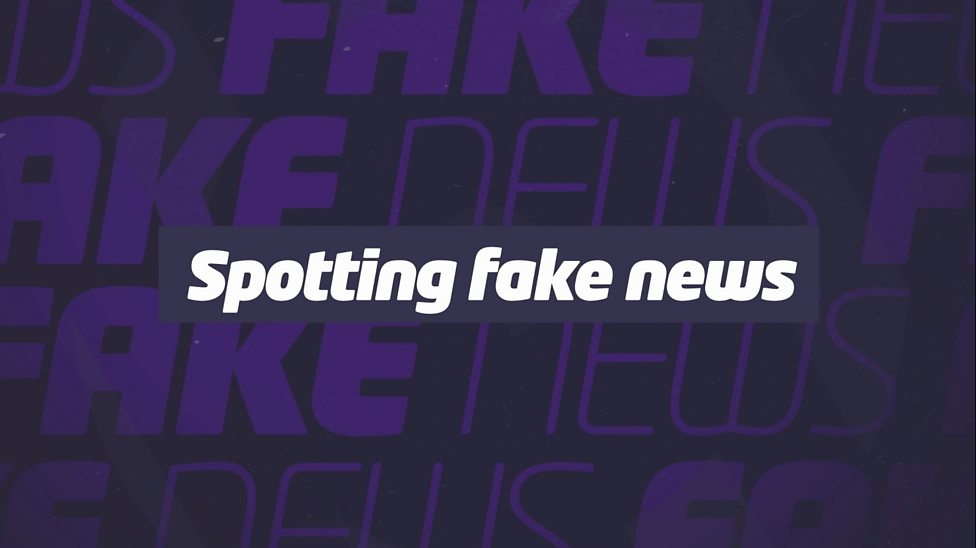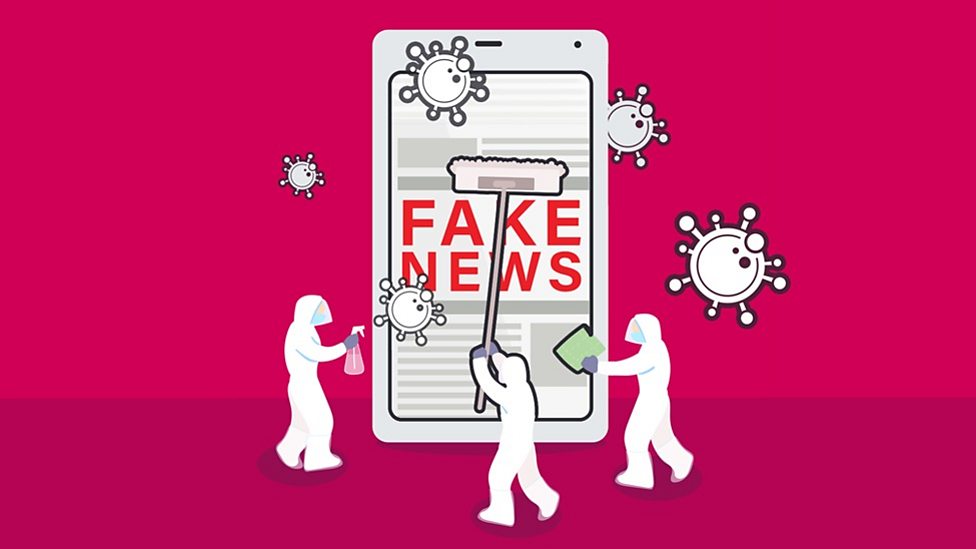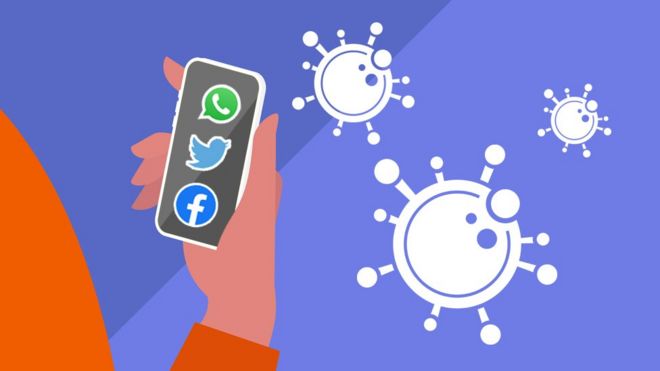To combat what the WHO has called an "infodemic" around Covid-19, BBC News Africa has launched a searchable library of fact-checks debunking popular myths and misinformation about coronavirus in Africa.Explore our top stories on this theme by using the arrows.Then search our library of fact-checks below.
To share Covid-19 misinformation you've spotted, you can email us here.
Top stories
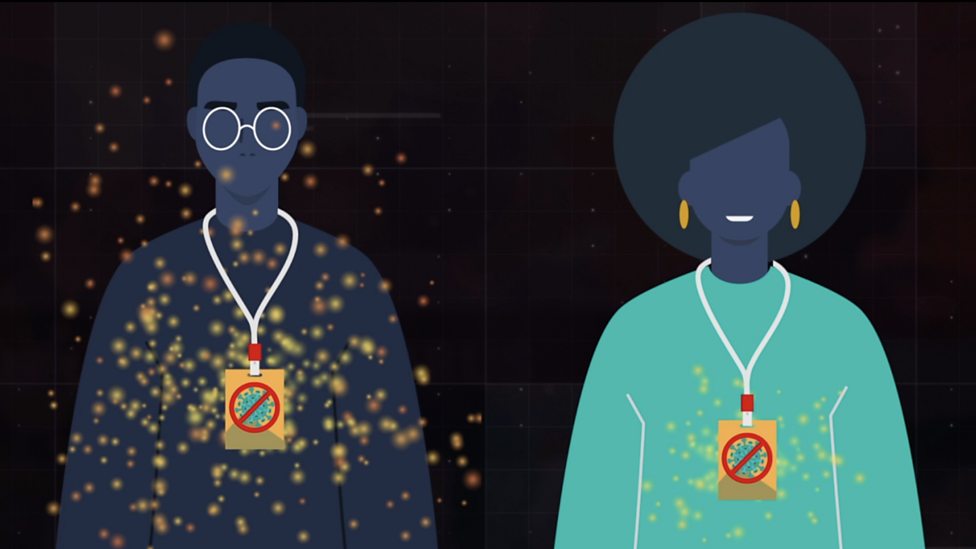
As scientists around the world race to find treatments and a vaccine for coronavirus, dozens of unproven cures are being promoted on and offline.
Politicians in Nigeria and Sudan, as well as other countries outside Africa, have been spotted wearing so-called "protective badges". They're being marketed as "virus blockers" or "virus stoppers" and are being sold around the world.
These badges claim to kill viruses and bacteria by releasing a type of bleaching agent, but experts say they do not work and could cause real harm.
BBC Africa's Yemisi Adegoke explains.
Video producer: Joshua Akinyemi
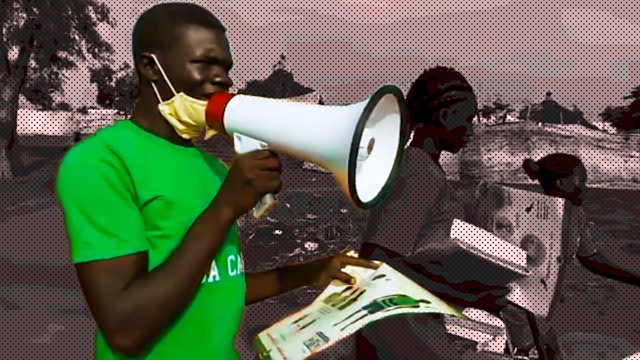
False beliefs about coronavirus are especially dangerous at South Sudan's Yida refugee camp, which is ill-equipped for any virus outbreak.
"They haven't even got the tools to take temperature," says Raga Gabreel, director of Green Kordofan Charity.
More than 46,000 people live in the Yida camp, most of them young people displaced by war in neighbouring Sudan.
But some of the young refugees are doing their best to fight the myths and accurately inform the camp's residents.
Video producer: Georgina Pearce for BBC My World
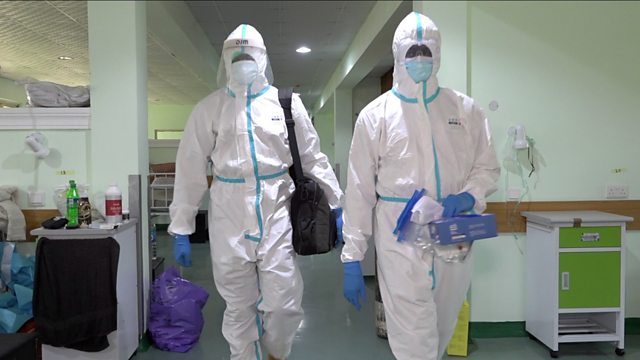
Cases of coronavirus are on the rise across Africa.
But in some countries, people don't believe the pandemic is real.
The hospitals of Nigeria's biggest city, Lagos, tell a different story, as BBC Africa's Yemisi Adegoke reports.
Filmed by Joshua Akinyemi
Produced by Charlotte Pamment
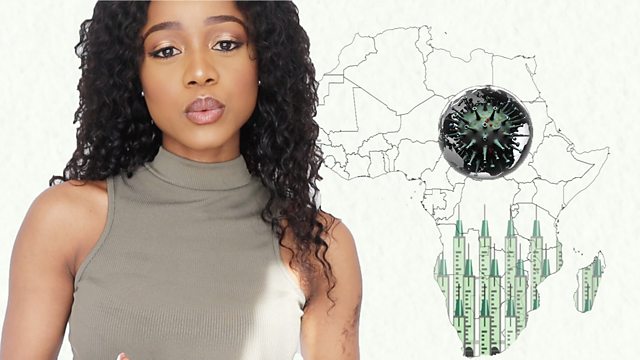
With the start of the first human vaccine trials in South Africa, Africa has now officially joined the race to find a Covid-19 vaccine.
The large-scale trial of the vaccine developed by Oxford University is being conducted in South Africa, the UK and Brazil.
Experts say a vaccine is the one thing that will help bring life back to normal, but trials have to take place in many different settings before there is one which is safe to use.
Scientists say that it is vital that Africans take part in these trials, arguing that not doing so could jeopardise efforts to find a vaccine that works worldwide - and not just for richer nations.
But critics cite a history of Western exploitation of Africa and unethical drug trials in the past as a reason not to participate.
BBC Africa's Joice Etutu reports on why vaccine trials in Africa are such a sensitive topic and whether things have changed.
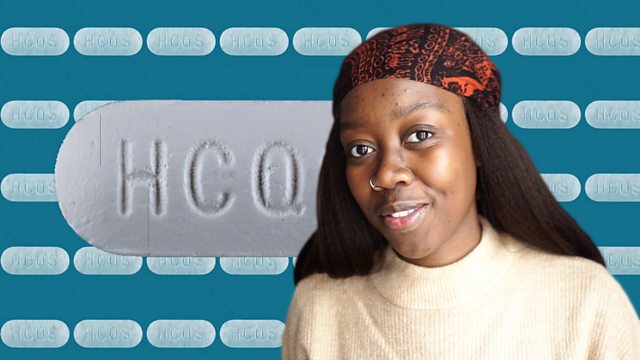
For months, hydroxychloroquine, has been at the centre of much interest as potential preventative measure and for treating patients with Covid-19.
The anti-malarial drug has been promoted by Brazil's President Jair Bolsonaro and his by his US counterpart Donald Trump who even took it himself for a while to ward off infection.
The ongoing interest in the drug has led shortages and rising prices which directly impacted those taking the drug already for autoimmune conditions like lupus and rheumatoid arthritis.
While recent large scale trials have shown that hydroxychloroquine is not effective as a treatment some countries have continued to promote its use within their healthcare systems.
With so many twist and turns, the question is where do we stand now with hydroxychloroquine?
Produced, edited and presented by Jameisha Prescod
Executive producers: Miriam Quansah and Marko Zoric
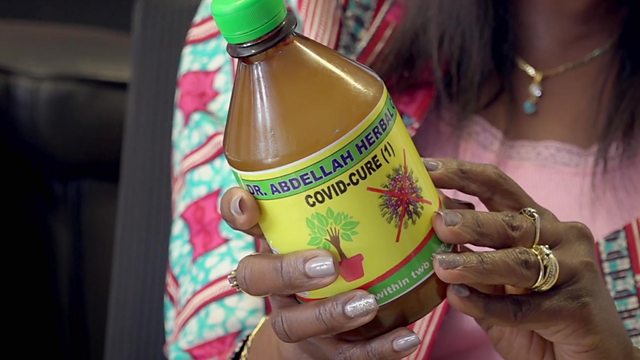
An underworld of quack doctors and conmen have been exploiting the coronavirus pandemic and making money selling fake coronavirus cures.
Investigative reporter Anas Aremeyaw Anas goes undercover in Ghana, exposing a Covid-19 scam said to be worth thousands of dollars.
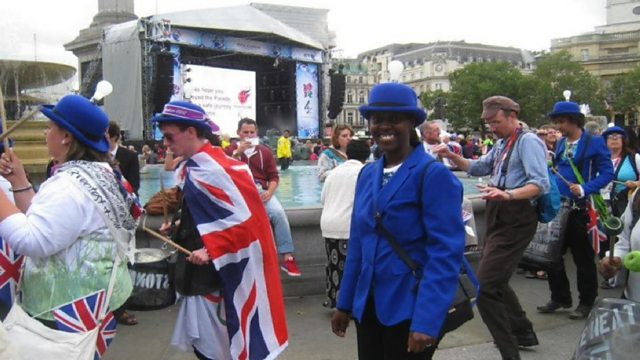
Elsie Kibue was in bed when her husband showed her a WhatsApp message he'd received from a friend.
It claimed to give information about the death of Uganda's fourth coronavirus victim, but the picture used in the post was of Elsie, a Kenyan woman living in London.
Video producers: Joshua Akinyemi and Yemisi Adegoke
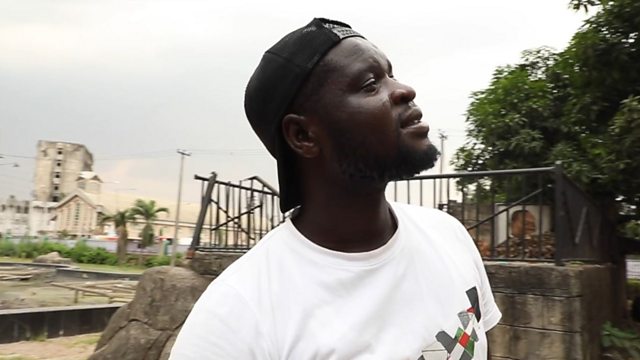
Days after Nigeria recorded its first positive coronavirus case, a story went viral on social media.
It claimed the taxi driver who had picked up the patient was demanding money not to spread the disease, sparking outrage among Nigerians.
The story was fake, but the impact on Jude Ikuenobe, the man whose photo was used in the post and who is an anti-trafficking campaigner, has been very real. He no longer feels safe going out alone and has received death threats.
His story is just one example of dozens of pieces of misinformation that have spread across Nigeria since the coronavirus outbreak.
Video producers: Joshua Akinyemi and Yemisi Adegoke
-
Blogger's claim on vaccine trials in Kenya is false9 October 2020
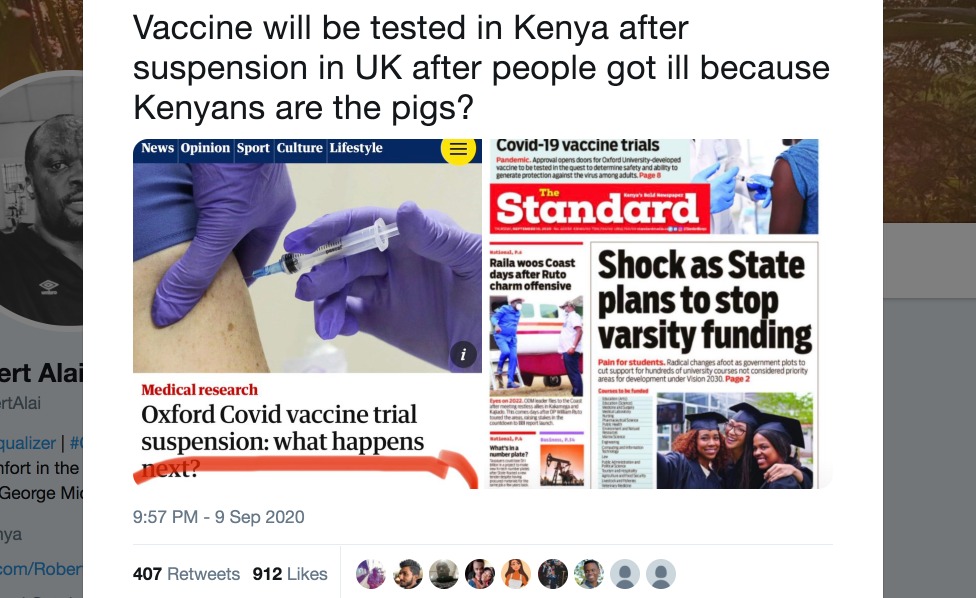
A popular Kenyan blogger falsely implied Kenyans would be used as guinea pigs for Covid-19 vaccine trials.
Claim rating: FALSEFact-checked by: BBC Reality Check -
No evidence coronavirus was created in a Chinese military lab9 October 2020
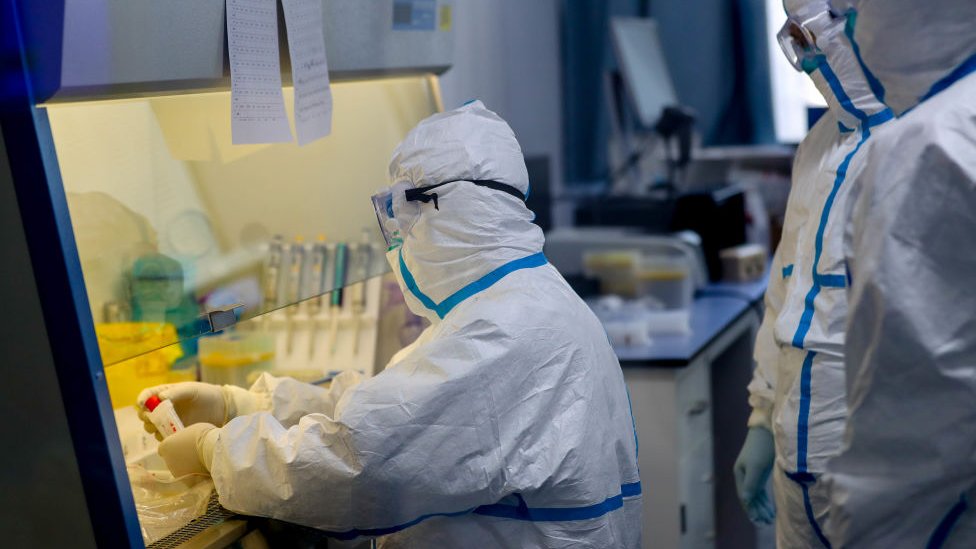
An Angolan government Facebook page shared a post claiming that the coronavirus was created in a Chinese military lab. There is no evidence to support that claim.
Claim rating: NO EVIDENCE -
No, a Kenyan Covid-19 victim did not come back to life9 October 2020
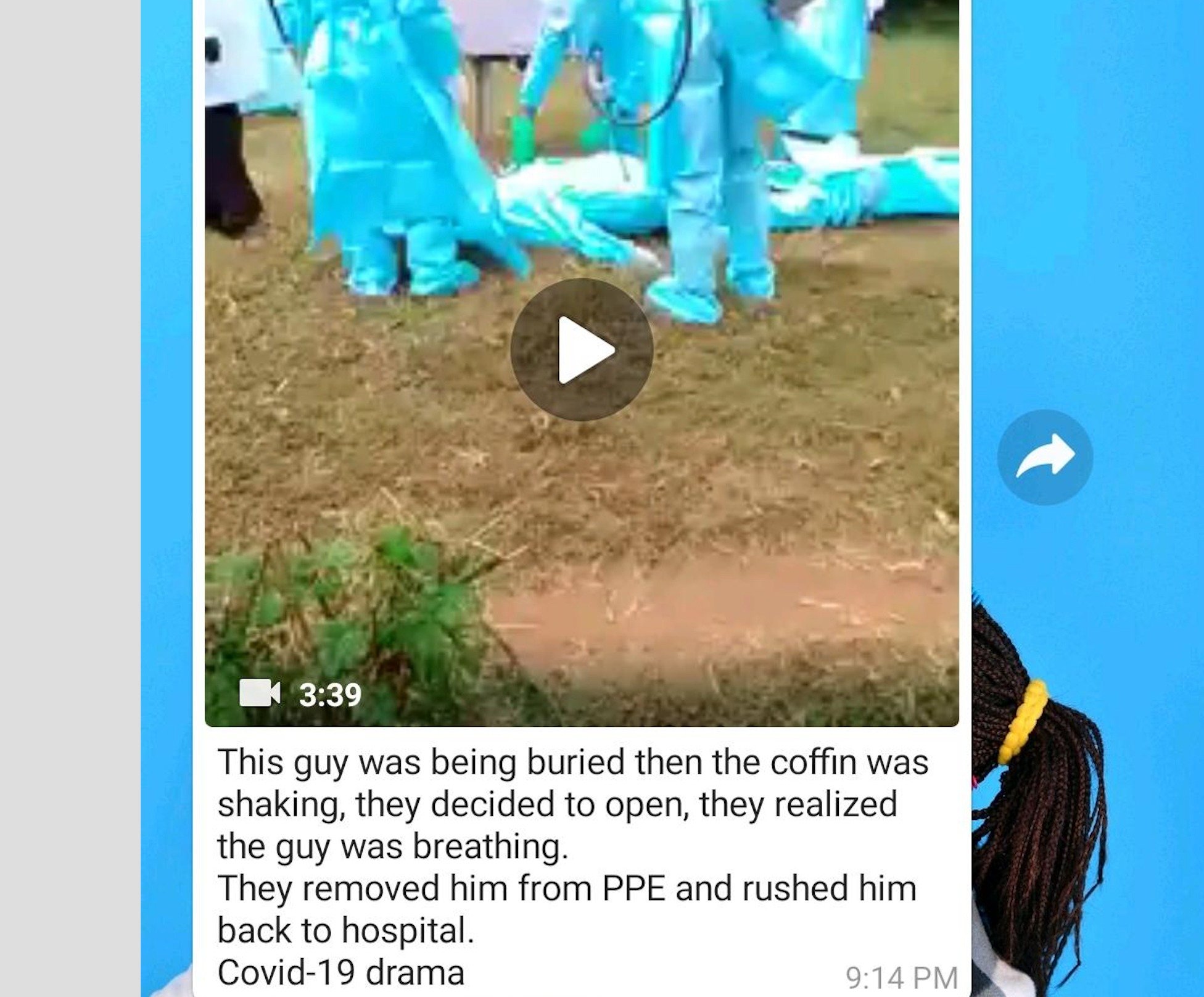
A video has been circulating on social media in Kenya falsely claiming to show a man said to have died of Covid-19 coming back to life during his burial.
Claim rating: FALSEFact-checked by: BBC Reality Check -
No, unwashed face masks do not cause legionnaires disease9 October 2020
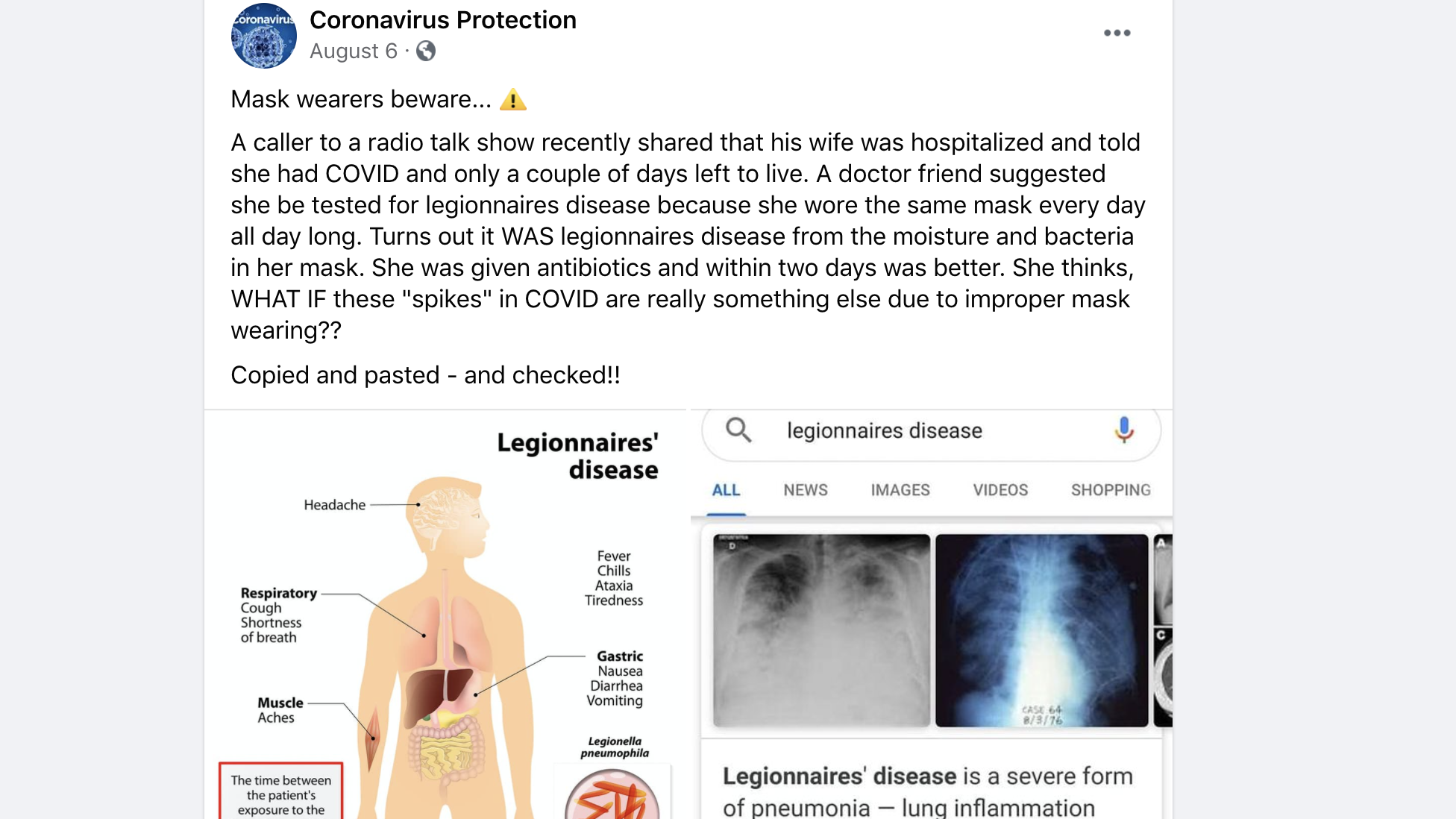
A widely shared message falsely claims that wearing a face mask without washing it can cause legionnaires disease.
Claim rating: FALSEFact-checked by: Africa Check* -
Infrared thermometers are safe and do NOT damage the pineal gland9 October 2020
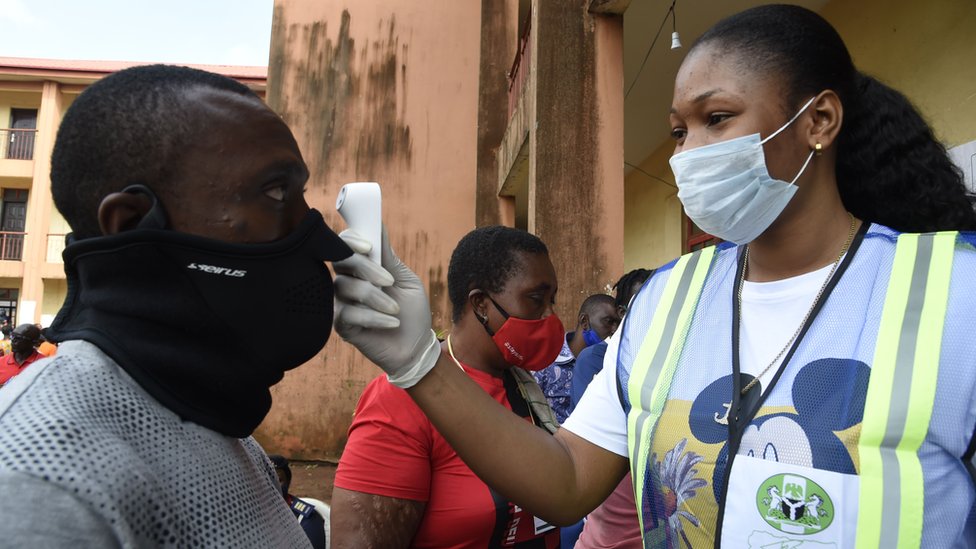
Posts on social media messages falsely claim that infrared thermometers, commonly used to measure temperature when screening for Covid-19, may be harmful.
Claim rating: FALSEFact-checked by: Africa Check* -
No evidence elephant dung can cure Covid-1920 August 2020

Unproven claims that elephant dung can cure Covid-19 have been circulating on social media in Namibia, leading to an increase in demand for the dung.
Claim rating: NO EVIDENCEFact-checked by: BBC Reality Check -
Ghana's president did NOT endorse a conspiracy theory9 August 2020
A voice recording endorsing various false conspiracies about the coronavirus pandemic has been falsely attributed to the President of Ghana.
Claim rating: FALSEFact-checked by: BBC Reality Check -
Video on reaction to alcohol ban in South Africa is satire9 August 2020
A satirical video of a man's reaction to the re-imposition of an alcohol sale ban in South Africa on a TV news channel has been taken by some as real.
Claim rating: MISLEADINGFact-checked by: BBC Reality Check -
Eating high-alkaline foods will NOT eliminate the virus9 August 2020
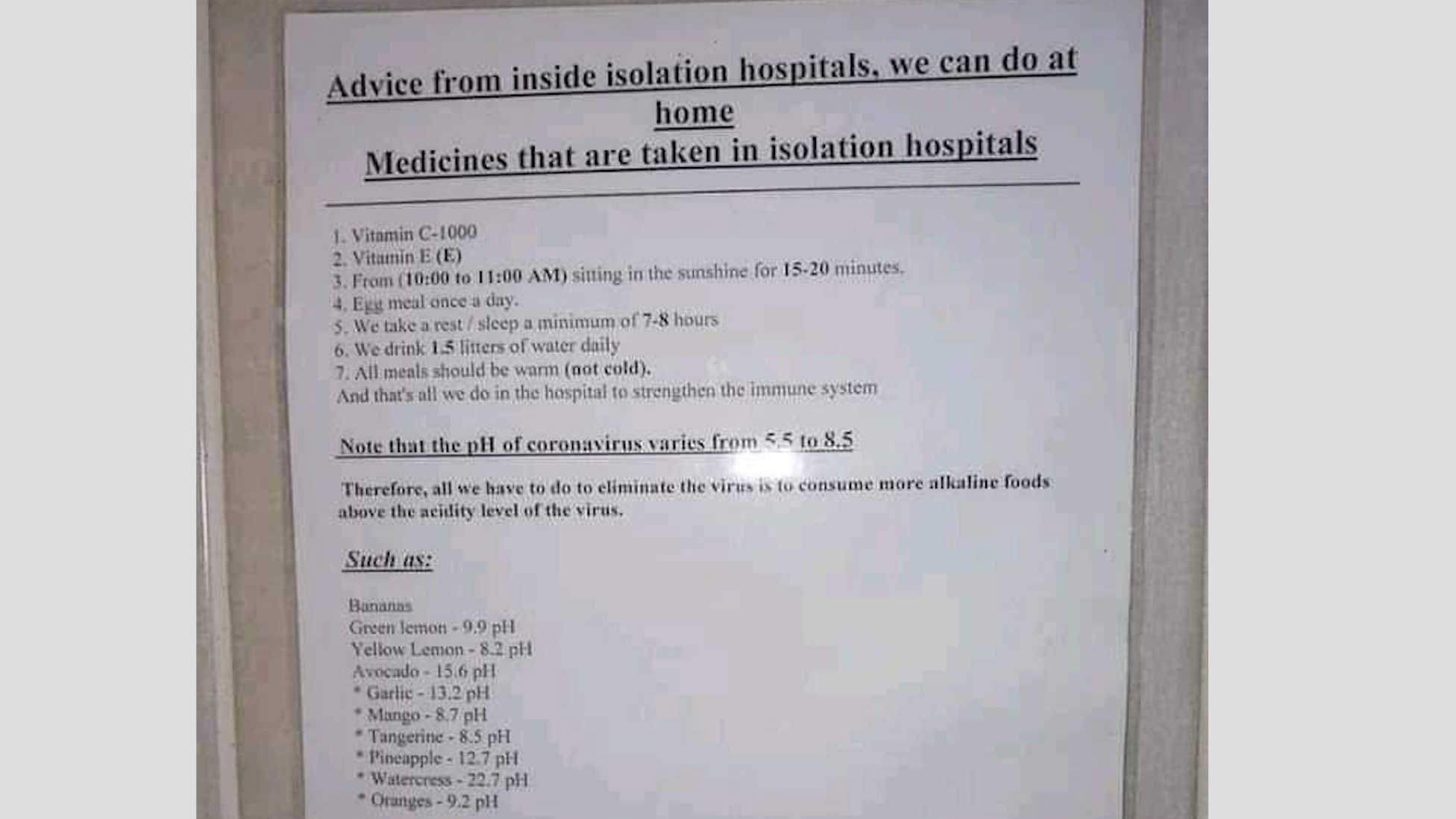
A poster falsely claiming that eating alkaline foods can eliminate the coronavirus has been circulating on social media.
Claim rating: FALSEFact-checked by: BBC Reality Check -
A coronavirus vaccine trial in Africa has NOT led to the death of two children9 August 2020
A London-based vlogger falsely claims that vaccine trials for Covid-19 were already under way in Guinea in April, and also falsely claims that two children died as a result.
Claim rating: FALSEFact-checked by: BBC Reality Check -
Prolonged mask wearing does NOT cause CO2 intoxication or oxygen deficiency25 June 2020

The WHO and other health experts have dismissed this claim. The breathable materials recommended for face masks worn properly will not inhibit your breathing.
Claim rating: FALSEFact-checked by: BBC Reality Check -
NO evidence Madagascar has found a cure for Covid-1925 June, 2020
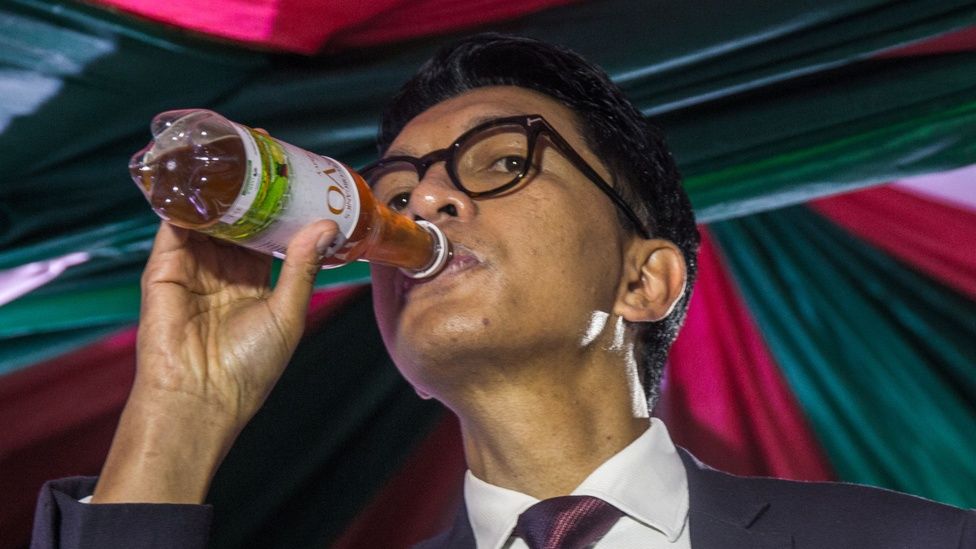
The country's president claims the Covid-Organics herbal drink has cured people, but there is no scientific evidence.
Claim rating: MISLEADINGFact-checked by: BBC News Africa -
Consuming alcohol does NOT protect you against Covid-1924 April 2020
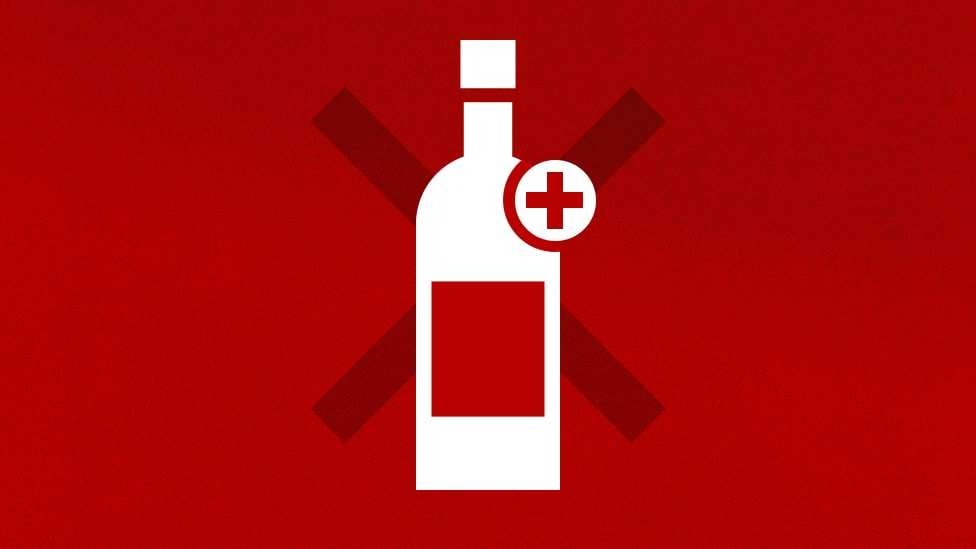
A Kenyan politician made this false claim to explain why cognac was included in relief packages for some Nairobi residents.
Claim rating: FALSEFact-checked by: BBC Reality Check -
Tanzania's president did NOT ban wearing masks in public06 June 2020

Misleading messages have been spreading on social media claiming that Tanzania's President John Magufuli has banned the wearing of masks in public.
Claim rating: FALSEFact-checked by: BBC Reality Check -
South Sudan's bogus badges against the virus06 June 2020

South Sudan President Salva Kiir and other senior officials have used so-called "protective" badges that claim to repel viruses, but which don't work.
Claim rating: NO EVIDENCEFact-checked by: BBC Reality Check -
Children did NOT die in Senegal from "Covid-19 vaccination"1 July 2020

Claims that seven children died after a mass Covid-19 vaccination programme in Senegal are false
Claim rating: FALSEFact-checked by: BBC News Africa -
No evidence coronavirus lasts up to a month on surfaces3 July 2020
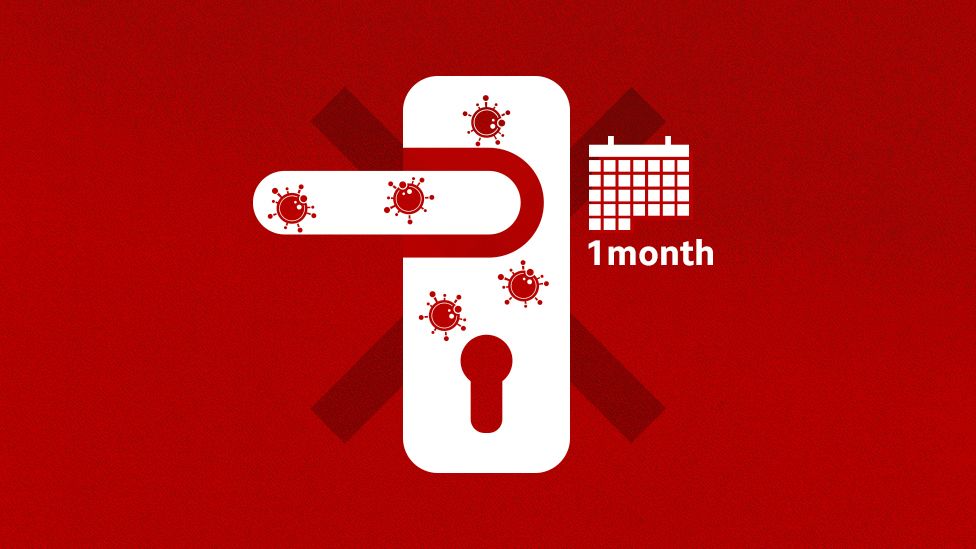
There is no evidence that coronavirus can survive on surfaces for up to one month if they are not cleaned properly.
Claim rating: NO EVIDENCEFact-checked by: BBC News Africa -
This South Sudanese minister did NOT die from coronavirus30 June 2020
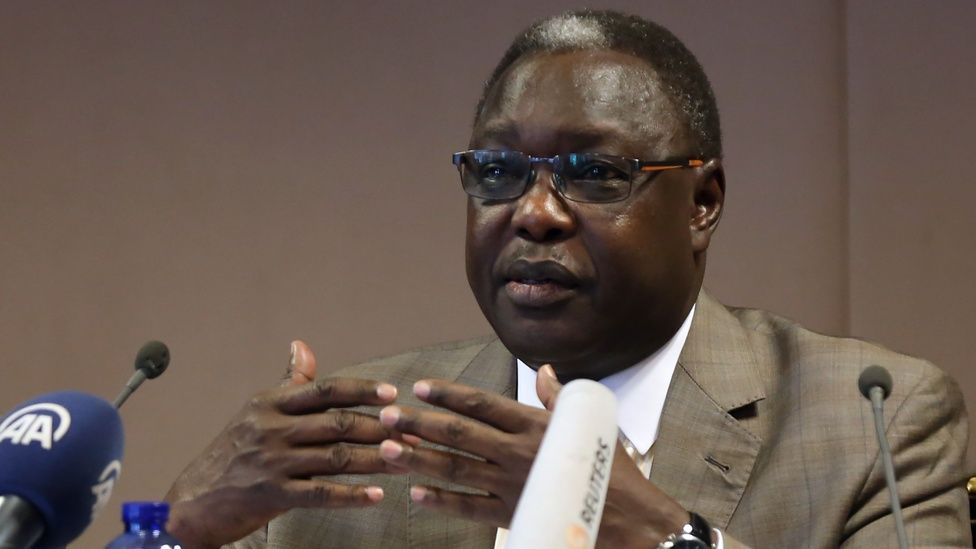
South Sudan's Minister of Cabinet Affairs came out to deny he had died from coronavirus
Claim rating: FALSEFact-checked by: BBC News Africa -
Inhaling steam does NOT cure coronavirus30 June 2020
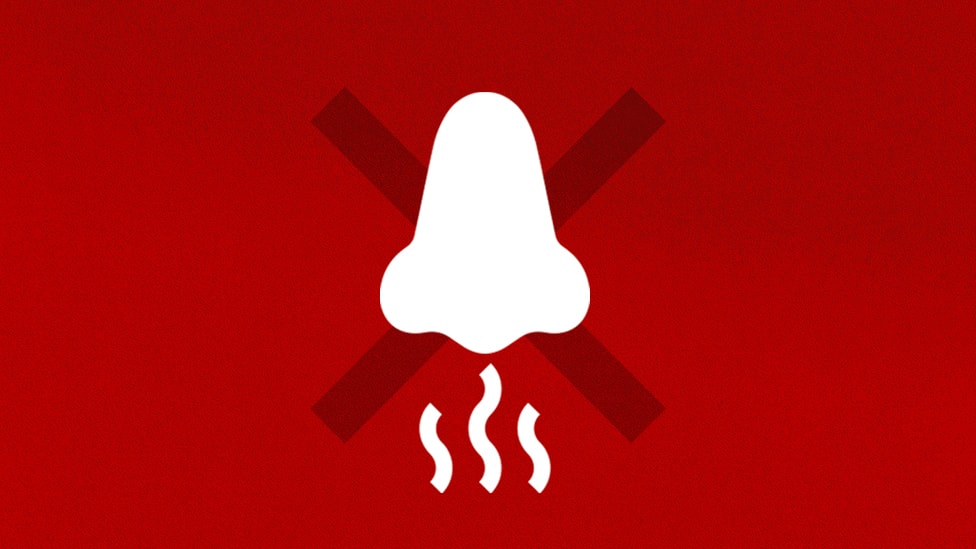
Inhaling very hot steam does not cure Covid-19 and could be harmful, according to health experts.
Claim rating: FALSEFact-checked by: BBC Reality Check -
Putting disinfectant into your body will NOT protect you from Covid-19 and can be dangerous30 June 2020
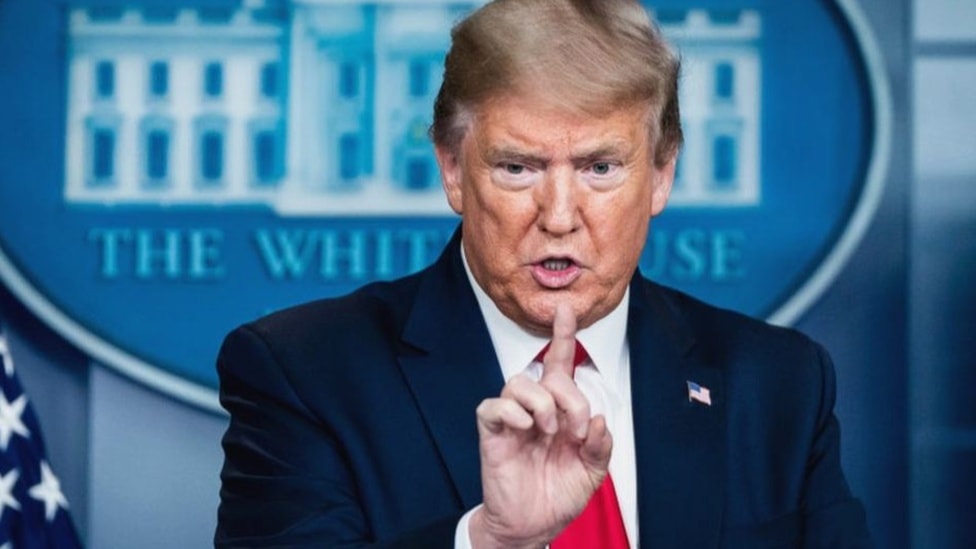
President Trump's suggestion this might help treat Covid-19 is false and has been widely denounced by medical experts.
Claim rating: FALSEFact-checked by: BBC Reality Check -
Applying menthol gel to the nostrils or drinking hot water do NOT prevent coronavirus9 April 2020
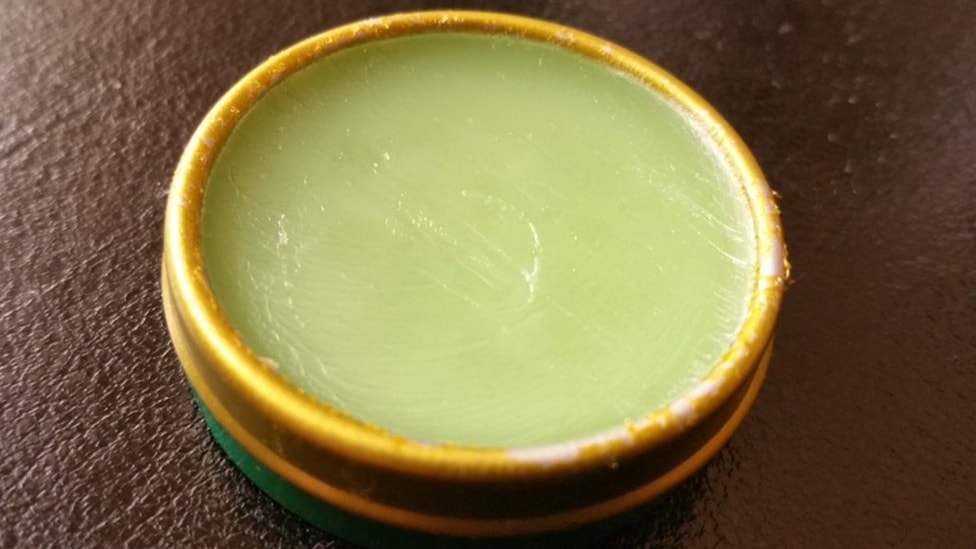
This is what Guinea's President Alpha Condé recommended but it is not backed by any scientific evidence.
Claim rating: FALSEFact-checked by: BBC News Africa -
Home-made hand sanitisers made with vodka do NOT prevent Covid-1930 June 2020
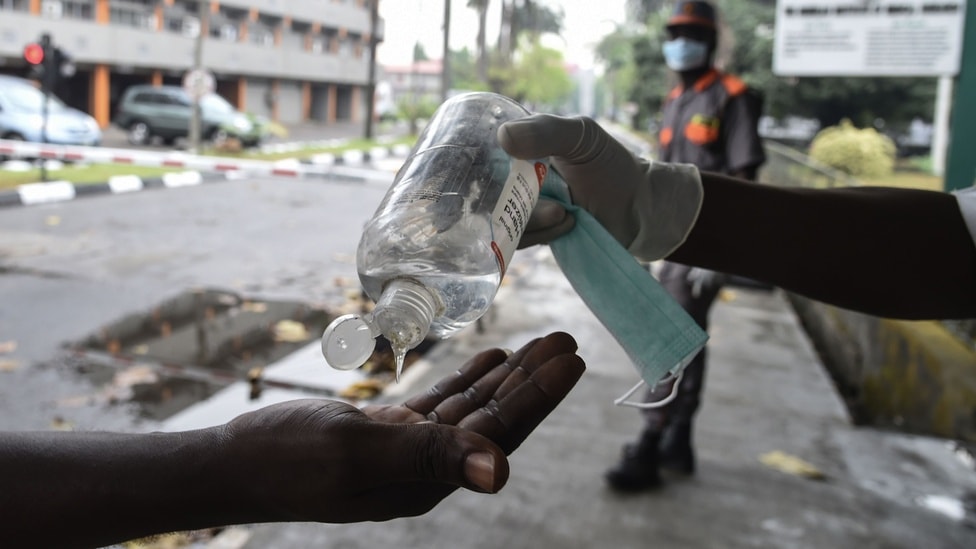
Home-made hand sanitiser recipes using vodka do not contain enough alcohol to kill the virus.
Claim rating: FALSEFact-checked by: BBC Reality Check -
This video does NOT show Africans under attack in China30 June 2020

The footage is actually from New York city not from China, despite false claims made in social media posts sharing the video.
Claim rating: FALSEFact-checked by: BBC Reality Check -
There's NO evidence the BCG vaccine protects against coronavirus30 June 2020
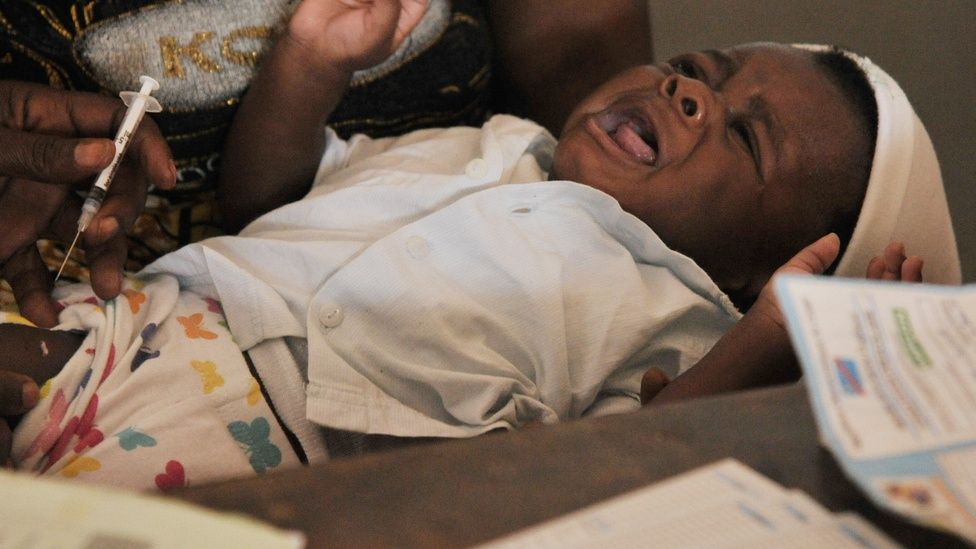
The World Health Organization (WHO) says there is no evidence to support this widely shared claim.
Claim rating: NO EVIDENCEFact-checked by: BBC Reality Check -
Blue facemasks are NOT contaminated30 June 2020
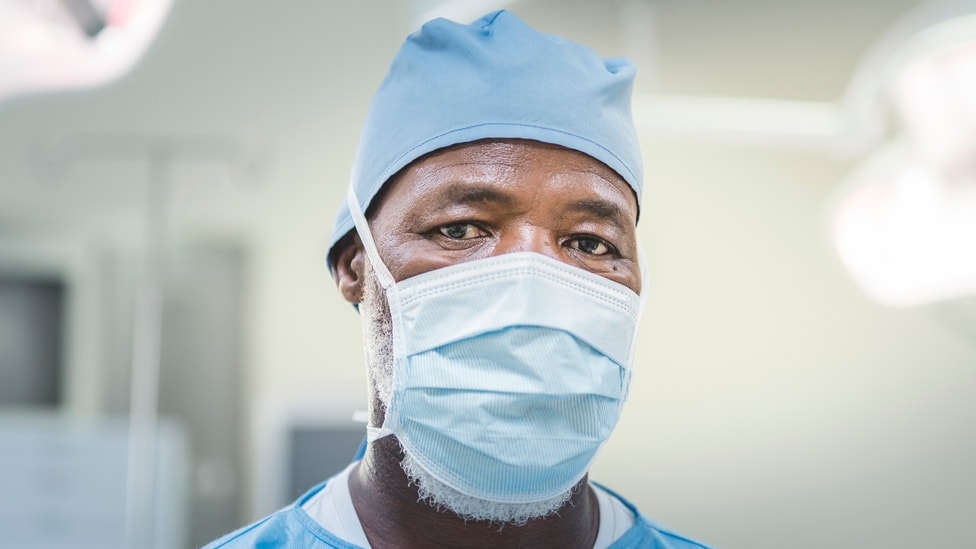
Social posts urging Africans not to wear blue masks contain fabricated quotes from public figures and are false.
Claim rating: FALSEFact-checked by: BBC Reality Check -
There's NO evidence HIV research is to blame for coronavirusApril 25th 2020

There's no link between work on an HIV vaccine and Covid-19, despite claims by a Nobel prize winner.
Claim rating: NO EVIDENCEFact-checked by: BBC Reality Check -
Coronavirus does NOT only affect the rich9 June 2020

Early cases outside China were among the well-travelled, but the virus isn't connected to wealth.
Claim rating: FALSEFact-checked by: BBC News Africa -
This Japanese Nobel Prize-winner did NOT say Covid-19 was manufacturedMay 2nd 2020

Prof Tasuku Honjo denies making the claim. Scientific evidence shows the virus came from animals and was not man-made.
Claim rating: FALSEFact-checked by: BBC Reality Check -
This video does NOT show Chinese-owned businesses being burned down in NigeriaJune 3 2020

The video of a fire at a Nigerian market is real, but the claim that the fire shows attacks on Chinese-owned businesses, is false.
Claim rating: FALSEFact-checked by: BBC Reality Check -
A list of Nigerian donors for a Covid-19 fund is fakeJune 9 2020
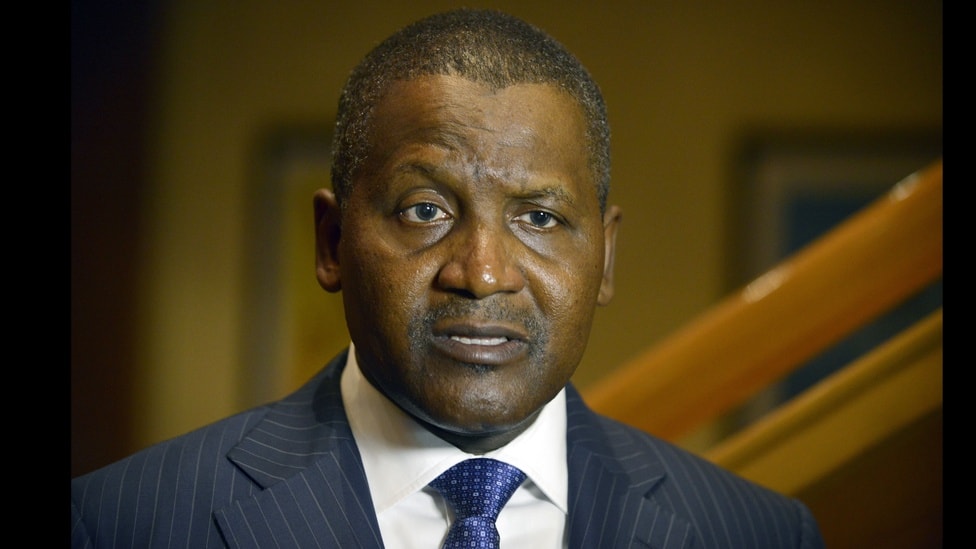
A letter claiming to show a list of donors to a Covid-19 relief fund in Nigeria is fake, the finance ministry says.
Claim rating: FALSEFact-checked by: BBC News Africa -
This video does NOT show Nigerian security officials violently enforcing lockdown

The video has been circulating online since 2013 and is from Ghana, not Nigeria.
Claim rating: FALSEFact-checked by: BBC News Africa -
A Chinese doctor in Nigeria did NOT test positive for coronavirusJune 1 2020
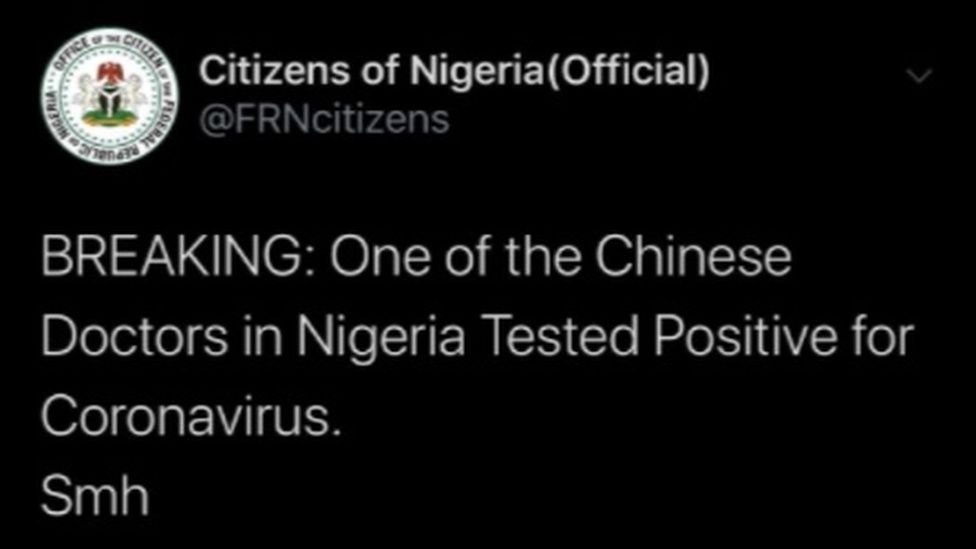
The Nigerian Centre for Disease Control denies that a Chinese doctor has tested positive for coronavirus in Nigeria.
Claim rating: FALSEFact-checked by: BBC News Africa -
The Nigeria Centre for Disease Control is NOT offering dream interpretation servicesJune 2 2020

The NCDC says a poster saying the agency is offering dream interpretation services is false.
Claim rating: FALSEFact-checked by: BBC News Africa -
Black skin is NOT resistant to Covid-1929 June 2020

There is no scientific evidence for this widely shared claim. Many black people have tested positive for Covid-19.
Claim rating: FALSEFact-checked by: BBC Reality Check -
Masks do NOT guarantee protection from Covid-199 June 2020

Masks can help protect you but need to be used alongside other precautions, such as frequent hand-washing and social distancing.
Claim rating: FALSEFact-checked by: BBC Reality Check -
5G technology did NOT cause hundreds of deaths in Kano9 June 2020
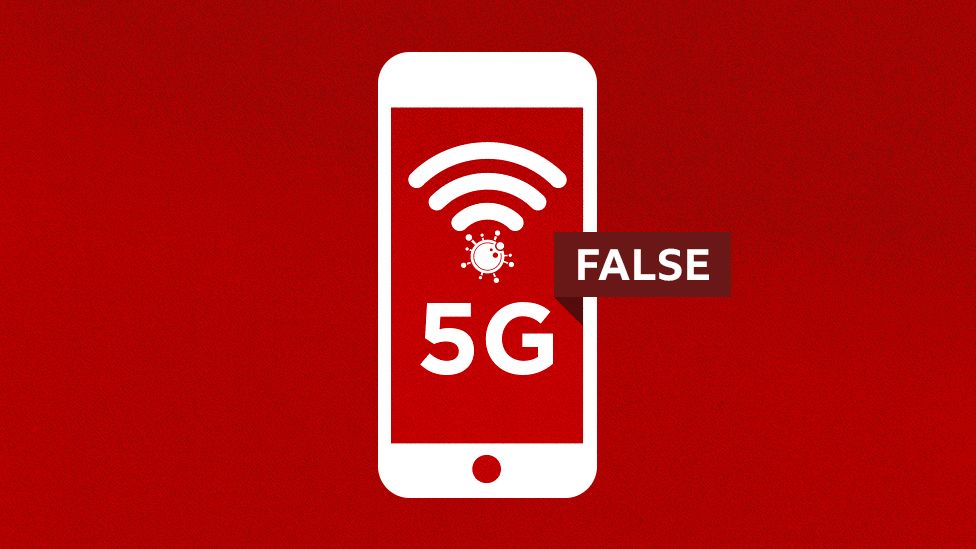
There is no evidence that 5G is harmful to your health and there is also no 5G network in Nigeria at the moment.
Claim rating: FALSEFact-checked by: BBC News Africa and BBC Reality Check -
Tanzania's health minister did not tweet that she had tested positive for Covid-196 June 2020
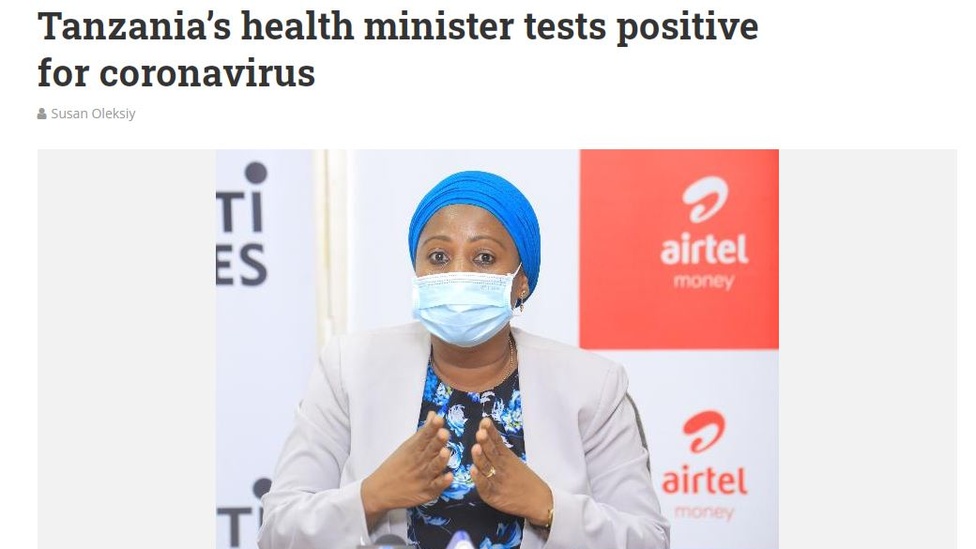
Claims that Health Minister Ummy Mwalimu had confirmed the news in a tweet, are false.
Claim rating: FALSEFact-checked by: BBC Reality Check -
You do NOT need to shave your beard to protect against Covid-1916 June 2020

This graphic predates Covid-19 and was intended for "workers who wear tight-fitting respirators", says the US Centres for Disease Control. Claims it shows advice on beards and Covid-19 prevention are false.
Claim rating: FALSE -
Nobel laureate dismisses fake news about Covid-19 role19 June, 2020
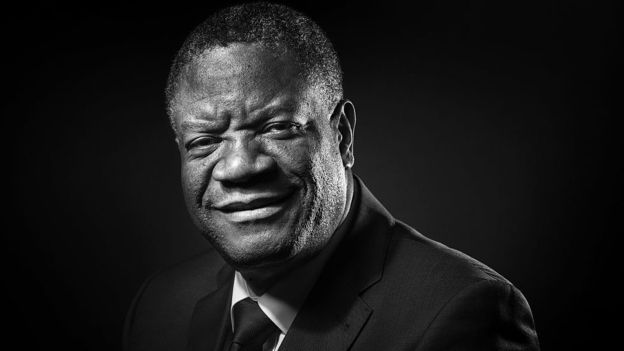
Congolese Nobel laureate Dr Dénis Mukwege has dismissed a false claim that he resigned from a Covid-19 task force because he had been ordered to inflate case numbers. In fact, he resigned because of inadequate testing capacity.
Claim rating: FALSEFact-checked by: BBC Reality Check -
Mosquitos do NOT transmit coronavirus25 June 2020
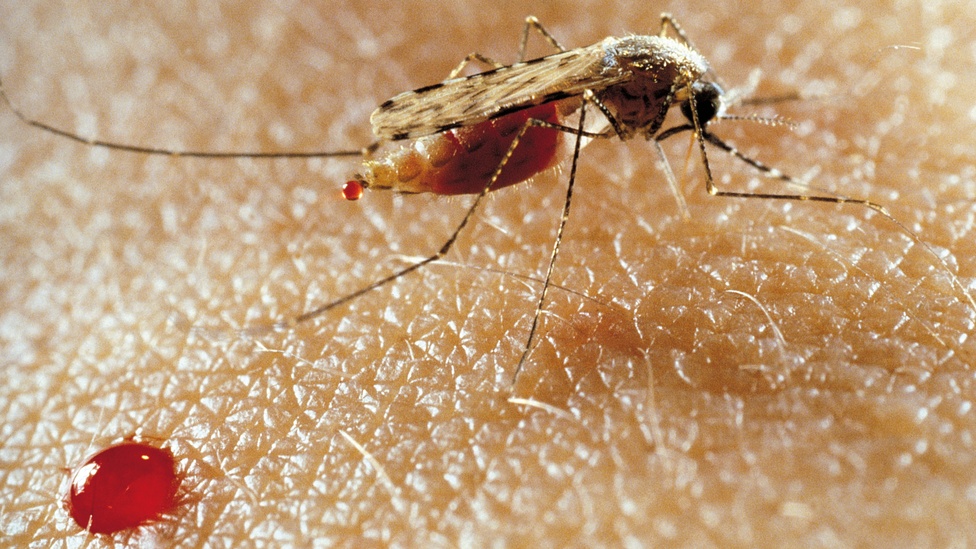
Rumours that you can get Covid-19 from a mosquito bite are false, according to the World Health Organization.
Claim rating: FALSEFact-checked by: BBC News Africa -
Tanzanian preacher wrong on 5G and Covid-193 July 2020

Popular preacher Josephat Gwajima has falsely claimed that 5G technology and the spread of the coronavirus are linked, a conspiracy theory strongly dismissed by scientists.
Claim rating: FALSEFact-checked by: BBC Reality Check -
Covid-19 trackers have NOT been secretly added to iPhone and Android handsets30 July 2020
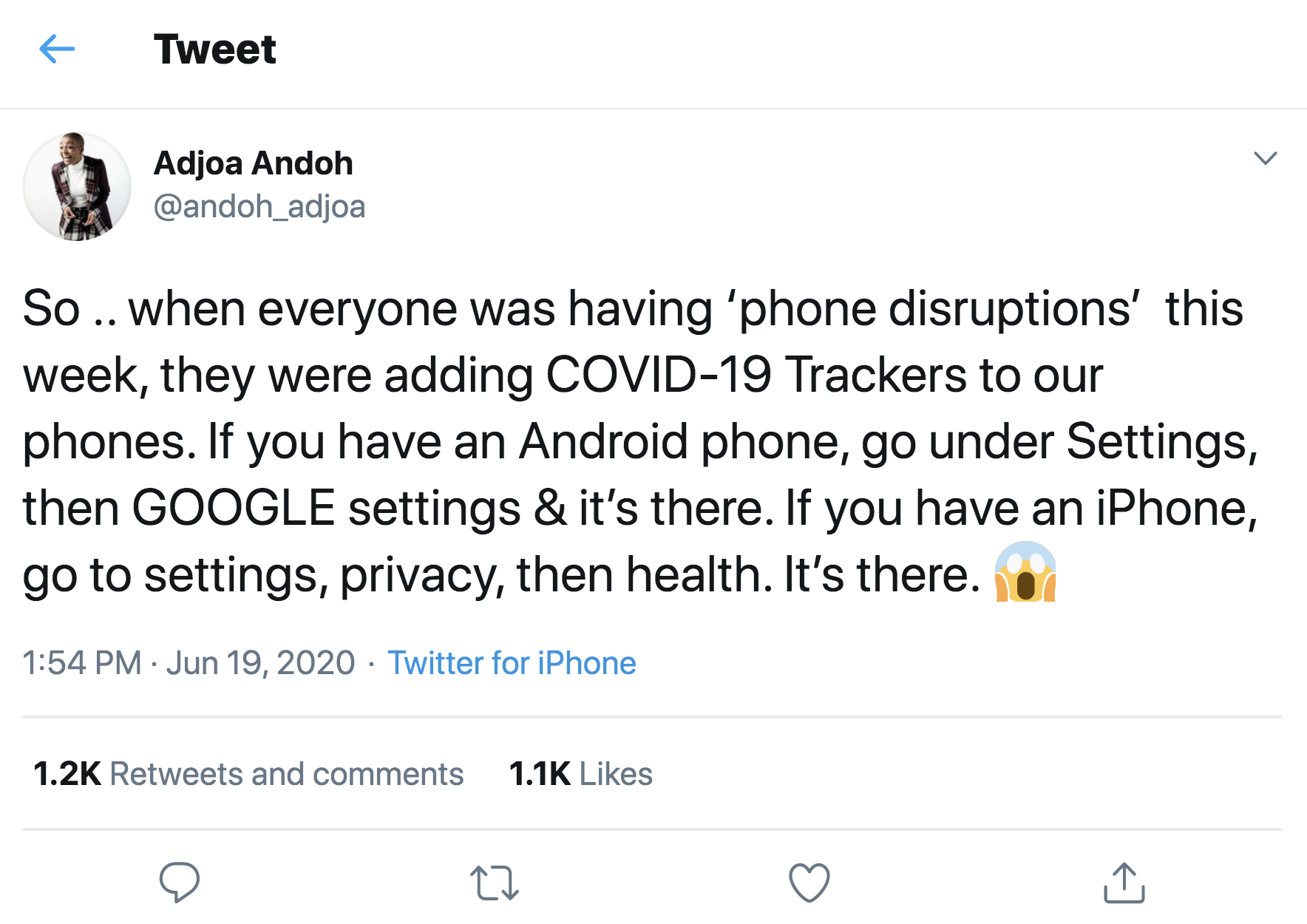
Covid-19 tracing software has been added to the phones, but the tool is switched off by default and there's nothing secret about it, despite social media claims.
Claim rating: MISLEADINGFact-checked by: BBC News Africa and BBC Reality Check -
No evidence Ghanaian president flew to London for Covid-19 treatment17 July 2020
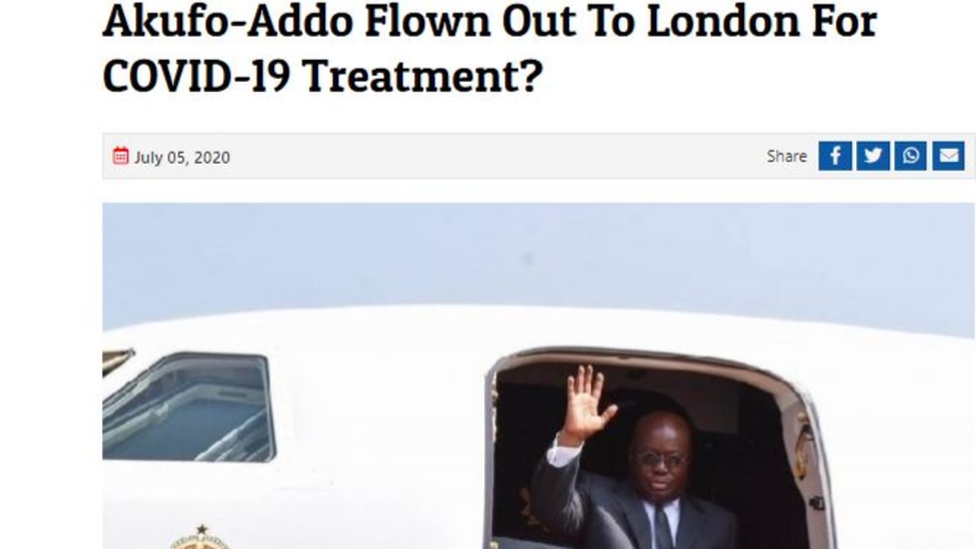
A newspaper report claimed Ghanaian President Nana Akufo-Addo was flown to London for Covid-19 treatment but there is no evidence he travelled out of the country.
Claim rating: NO EVIDENCEFact-checked by: BBC News Africa -
No evidence hydroxychloroquine can treat Covid-1929 July 2020
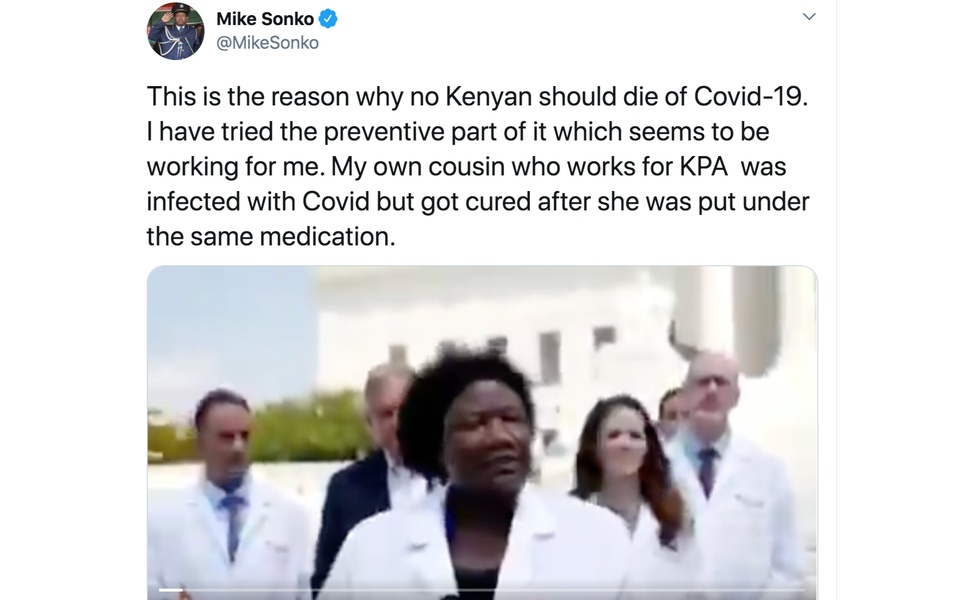
Online users, including Nairobi's governor Mike Sonko, have been sharing videos and social media posts claiming the anti-malaria drug hydroxychloroquine can cure Covid-19. But there is no evidence so far that the drug is effective.
Claim rating: NO EVIDENCEFact-checked by: BBC Reality Check -
No, your grave isn't ready. Fake text message is NOT from SA government27 July 2020

Alarming text messages, supposedly sent to South Africans by the government informing them that their grave is ready should they die from Covid-19, are false.
Claim rating: FALSEFact-checked by: Africa Check*
- Make sure all the words are spelt correctly
- Try using a different keyword
- Try a different category
- Try a different category






